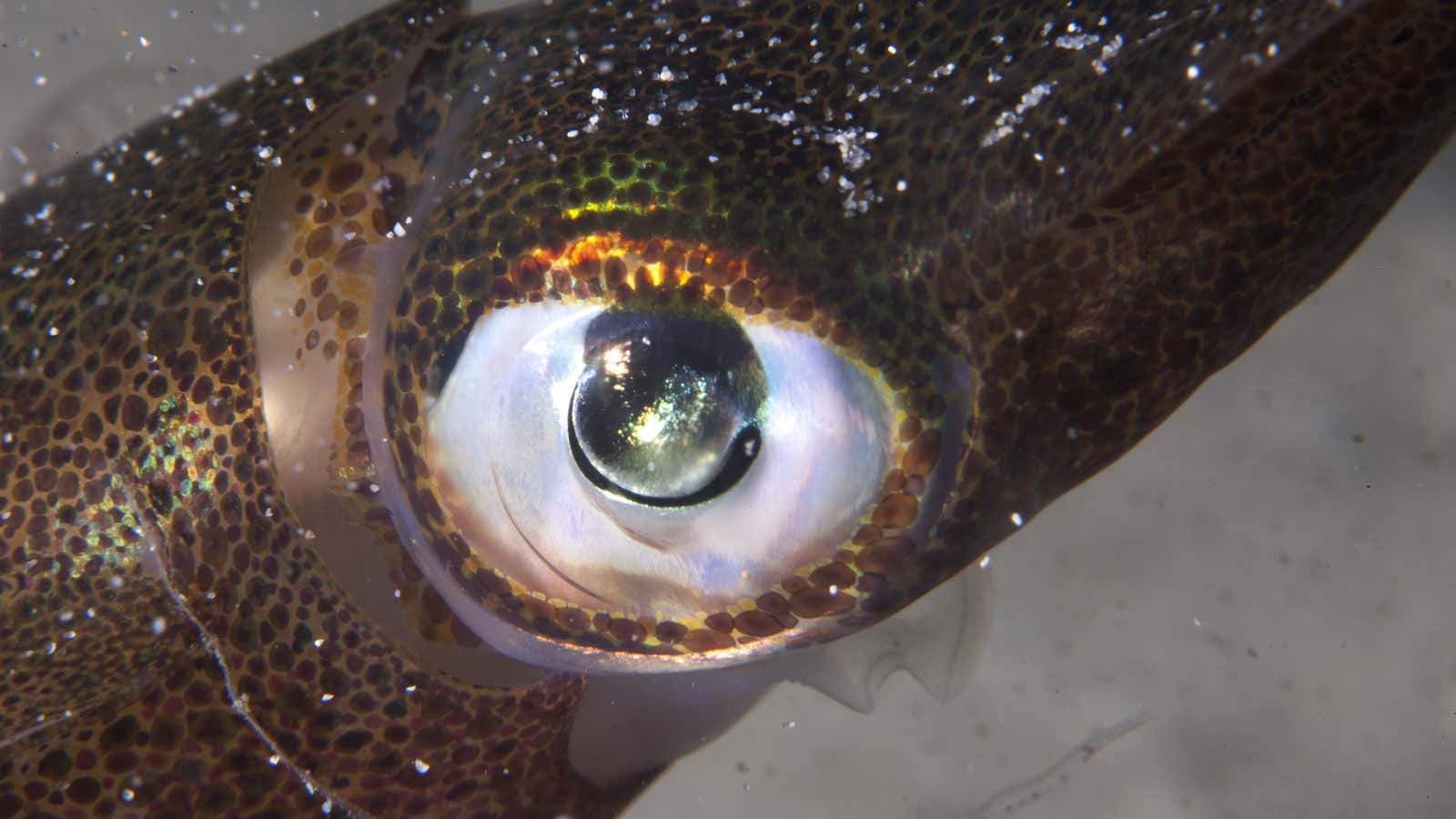Pain may be unpleasant, but it’s also important. It keeps us from continuing to do things that damage our bodies. In fact, people who are born without normal pain sensitivity often harm themselves unwittingly.
But when you grab a hot coffee cup and burn your hand only slightly, it can sting for hours, or even days. What’s the point of that? New research suggests that long-lasting pain from a minor injury is actually an evolved survival mechanism.
A new study led by Edgar T. Walters, a professor at the University of Texas Medical School, looked at the behavior of squids who’d suffered minor injuries. When exposed to a predator (the squid-gobbling black sea bass), injured squids were more likely to be attacked. Fear not: Those injured squids fought back, showing a better use of defensive mechanisms than their uninjured counterparts.
But the researchers gave some of those injured squid an anesthetic, and found that with the effects of their injuries blocked, the squids did not display heightened defense mechanisms. They were still more likely to be attacked, but they failed to respond with enough gusto to escape the dreaded bass.
There’s no evidence that squid are complex enough creatures to experience a conscious sensation that we could call pain, the researchers said. The nerve sensitivity they experience after injury could be entirely unconscious. But a better understanding of how that sensitivity works could help us learn how to treat it—even in humans.
